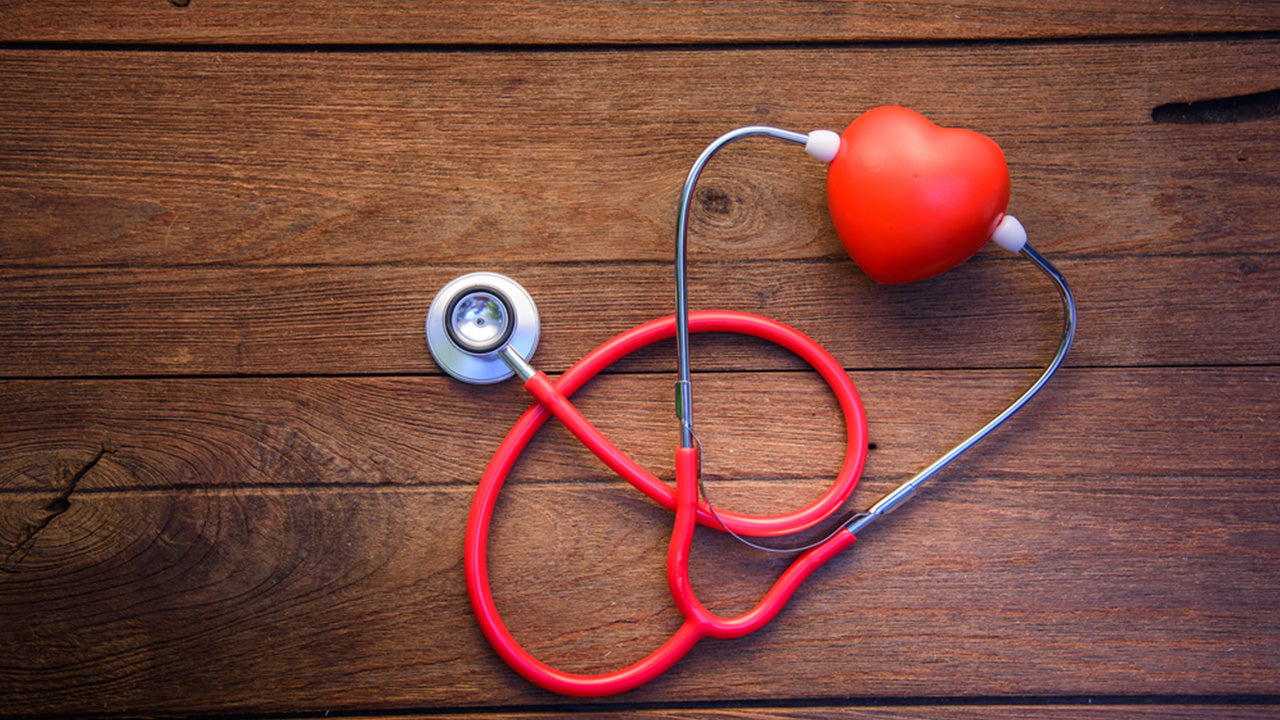Signs of Early Heart Disease and When to Seek Treatment
 By: by Amino Science
By: by Amino Science

According to the Centers for Disease Control and Prevention (CDC), approximately 610,000 Americans die each year as a result of heart disease. This number works out to one out of every four deaths, making heart disease the leading cause of death in the United States. But perhaps more alarming is the fact that the CDC estimates that half of all Americans have at least one of the three main risk factors for heart disease. Which makes recognizing the signs of early heart disease important for just about everyone.
So, in this article, we’re going to take a closer look at this major health issue, uncover the warning signs you should watch out for—and when to seek treatment—and discuss the steps you can take to protect your heart health and your life.
What Causes Heart Disease?
The term heart disease, or cardiovascular disease, actually refers to a group of conditions that affect the heart. Although there are many different types of heart problems, some of the more common ones include:
- Coronary artery disease
- Valvular heart disease
- Arrhythmia (irregular heartbeat)
- Heart failure
- Cardiomyopathy (heart muscle weakness)
In addition, different types of heart disease have different causes. For example, coronary artery disease is the result of the buildup of cholesterol deposits in the coronary arteries, while arrhythmias are caused by an abnormality in the heart’s electrical system, and valvular heart disease may have its roots in age-related weakening of the heart muscle, damage associated with a heart attack or infection, or congenital heart defects.
Because both heart failure and cardiomyopathy are the result of heart muscle weakness, these two conditions often have similar causes—and sometimes heart failure is the direct result of cardiomyopathy.
Some of the issues that can lead to both heart failure and cardiomyopathy are:
- High blood pressure
- Diabetes
- Thyroid disease
- Obesity
- Heart attacks
- Heart valve problems
- Infections
Risk Factors for Heart Disease
As mentioned, approximately half of all people in the United States have at least one of the three main risk factors for heart disease. These key risk factors are:
- High blood pressure
- High cholesterol
- Smoking
But high blood pressure, high cholesterol, and smoking aren’t the only influencers that can increase your risk of developing heart disease. Other risk factors include:
- Age: Older adults have a greater risk of heart disease, and adults over the age of 65 are more likely to die of heart disease than other age groups.
- Sex: Men are more likely than women to have heart disease, though women’s risk increases after menopause.
- Weight: People who are obese have a higher chance of developing heart disease.
- Family history: People with a family history of heart disease are more likely to develop the condition themselves, especially if a relative had the disease at a young age.
- Diet: People who consume diets high in salt, sugar, and unhealthy fats are more at risk of heart disease.
- Lifestyle: People who lead sedentary lifestyles are more at risk of heart disease.
- Stress: Long-term stress mimics the effects of infection and leads to chronically high levels of inflammation, which is a risk factor for heart disease.
- Health conditions: Certain medical conditions, including diabetes, increase a person’s risk of developing heart disease.
Symptoms and Signs of Early Heart Disease
If you think the first symptom of heart disease is chest pain, you might be interested to know that that’s not always the case. In fact, many people with heart disease never experience any chest discomfort at all.
Instead, the symptoms and signs of early heart disease may mimic other, more benign issues, which is why many people tend to dismiss them as unimportant.
But if you have risk factors for heart disease, you should be aware of the early warning signs your heart sends out when it’s crying for help. Symptoms to watch for include:
- Aches and pains: Even if you don’t experience chest pain or discomfort, you may feel aches and pains in other parts of your body. Jaw and back pain as well as pain in the arms, shoulders, or abdomen that comes on with activity should be particularly worrisome.
- Shortness of breath: While anyone can be out of shape, shortness of breath that occurs with even minimal physical activity may be a sign of more than a mere lack of physical fitness.
- Fatigue: A feeling of fatigue that occurs in the absence of any known cause and becomes constant may be a sign of coronary artery disease or even heart failure.
- Palpitations: Most palpitations are perfectly harmless and simply the result of too much caffeine, anxiety, or dehydration, but sometimes a rapid or irregular heartbeat can be an early sign of heart disease.
- Foot and ankle swelling: Swelling of the feet and ankles that leaves an indentation when you press on it may be caused by a number of conditions, including decreased blood flow, excess salt consumption, certain medications, or kidney or liver disease, but it may also be a sign of early heart disease.
When to Seek Treatment
If you’re at risk of heart disease and experience any worrisome signs or symptoms, don’t hesitate to contact your health care provider for a physical examination and medical tests that can help identify whether you have evidence of heart disease.
It’s also important to note that certain symptoms require immediate medical attention. If any of the following symptoms come on suddenly, you should seek emergency care right away:
- Shortness of breath
- Chest pain or pressure
- Dizziness
- Lightheadedness
- Fainting
- Nausea or vomiting
- Extreme fatigue
- Arm, shoulder, stomach, back, or jaw pain

Treating and Preventing Heart Disease
If you’re experiencing signs of early heart disease, the good news is that symptoms can be improved and, in some cases, eliminated by implementing a few simple lifestyle changes. As an added plus, any improvements you make to your lifestyle will have the benefit of boosting your overall health as well.
Great ways to address some of the common signs of early heart disease include:
- Quitting smoking: One of the most important risk factors for heart disease is smoking, so if you don’t smoke, don’t start. And if you do smoke, resolve to quit. However, if you don’t feel capable of quitting on your own, don’t be afraid to reach out to your health care provider for help.
- Moving: A lack of exercise is a key factor in many health-related issues, and heart disease is no exception. After verifying with your health care provider that your heart is strong enough for regular exercise, try aiming for approximately 30 to 60 minutes of physical activity most days of the week. Increasing your activity level—whether by dancing in your living room, gardening, or simply enjoying a regular walk around the block—can lead to improvements in many of the risk factors for heart disease, including obesity, diabetes, and high blood pressure and cholesterol levels.
- Managing medical conditions: If you have high blood pressure, elevated blood sugar, or high cholesterol, getting these risk factors under control can help prevent the onset of heart disease or stop the progression of pre-existing heart-related symptoms.
- Addressing emotional health: Taking steps to reduce stress or treat mental health issues like depression can help control symptoms and even reduce your risk of heart disease altogether. And proven techniques like meditation and yoga can not only lower stress levels but may also alleviate many symptoms of depression.
- Eating well: Diets that emphasize plenty of fresh fruits and vegetables, whole grains, lean proteins, and healthy fats have been proven to reduce the risk of many inflammatory conditions, including heart disease.
- Trying amino acids: When taken as part of a balanced formula of essential amino acids, the amino acids citrulline, arginine, leucine, and carnitine have been shown to benefit people suffering from heart failure by aiding in the maintenance of muscle mass, helping to regulate blood flow, and improving energy production.
Any symptoms worrisome for heart disease should be discussed with your health care provider as soon as possible. By addressing signs of heart disease in their early stages, you can decrease your risk of life-threatening complications and improve your overall health and quality of life.

Up to 25% off Amino
Shop NowTAGS: conditions
Join the Community
Comments (0)
Most Craveable Recipes




 833-264-6620
833-264-6620



















